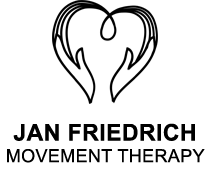Once upon a time, deep within the city of Babylon, a fellow human burdened with the weight of unresolved trauma yearned for solace. Like a fragile butterfly yearning for liberation, she carried the scars of her past, the echoes of pain etched deep within her being.
Fortune smiled upon her as she embarked on a serendipitous encounter. In her way through the city, she chanced upon a wandering healer, a wise soul on a journey of his own. The traveller possessed a rare gift—the ability to heal wounds that could not be seen with the naked eye.
As their paths converged, the patient felt an inexplicable connection. Their eyes met, and within that fleeting moment, a silent understanding passed between them. The healer, sensing the weight of that burdened her spirit, extended a hand in a gesture—an invitation to embark on a transformative journey.
With a mixture of trepidation and hope, she accepted his invitation. Together, they ventured towards his sanctuary. The healer became her guide, his presence a compass leading her towards the realm of liberation.
During the treatment patient’s burdens began to unravel. Healer’s touch, gentle yet profound, unveiled the wounds hidden beneath the surface. With each encounter, he wielded the power of healing like a master craftsman, unravelling the tangled threads of pain and illusions—weaving them into a tapestry of life and strength.
As the patient opened herself to vulnerability, the healer held safe space for her, a steady pillar of support. Through the shared moments of introspection, she discovered the resilience that lay dormant within her—a fire waiting to be ignited. With each step, she shed the weight of her past, emerging lighter and more vibrant, like a butterfly breaking free from its chrysalis.
Together, they traversed the labyrinthine trails of her soul, encountering shadows and hidden depths. The patient faced her darkest memories head-on, guided by the healer’s unwavering presence. He witnessed her pain without judgment, offering solace and encouragement as she navigated the maze of her emotions—guiding her back to joy and harmony.
Through their shared encounters, a profound alchemy occurred. The patient’s spirit, once fragmented and lost, began to integrate, forming a mosaic of resilience and self-empowerment. With each session, he breathed life into the patient’s spirit, reminding her of the vast possibilities that lay beyond her past.
Later, she stood at the doorstep of the sanctuary, transformed and emboldened. The healer, having fulfilled his purpose, bid her farewell, knowing that she had found the power to navigate her path on her own. He left her with a final gift—the knowledge that the healer she had sought was within her all along.
With a heart full of gratitude and newfound strength, she stepped into the light. The echoes of her trauma no longer defined her, but instead propelled her forward, a source of wisdom and resilience. She carried his teachings within her, a guiding light to illuminate the path of others who sought healing.
And so, the patient’s story merged with the healer’s, forever entwined in the common universe. The chance encounter had transformed her life, reminding her that sometimes, the greatest healers are those we stumble upon unexpectedly—the ones who guide us towards our own inner strength and help us reclaim our stories.
